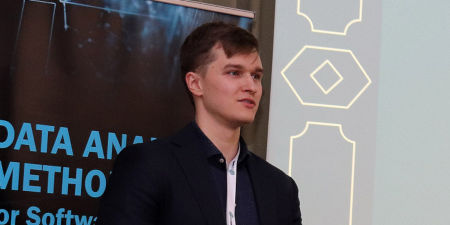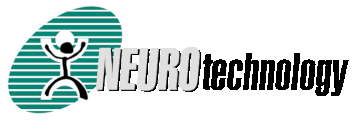Believe in Yourself and Put in Maximum Effort - Vytas Mulevičius story

1. How did you start your career at Neurotechnology?
Neurotechnology was one of about 30 or 40 companies I applied to after my first year of studies. I searched a registry of all companies in Lithuania and reached out to those working with AI. At the time, my friend and I were working on a project related to algorithmic trading, and by coincidence, a team at Neurotechnology was doing something similar.
2. When did you develop an interest in Artificial Intelligence?
My initial interest in AI began during my first year at university in Birmingham, UK. In my first semester, I took a module called Introduction to Artificial Intelligence, where I was first exposed to the idea of machines learning on their own. From that first lecture, I knew this was the field I wanted to pursue.
3. Were you always interested in Natural Language Processing?
No, not at all. Initially, I was deeply interested in computer vision algorithms, optimization techniques like quantization and pruning, and efficient training methods.
My interest in NLP began when we started pivoting to text analysis with StockGeist around 2018-2019. After that, custom projects and various government tenders followed, which further fueled my passion for NLP.
4. How would you describe your typical Monday at Neurotechnology? Do you always follow a strict schedule?
Typically, the day starts with coffee and catching up on communication–both internal and external. First of all, I take time to outline the most important priorities for the week. These could include a key project deadline, a product release, or an important client meeting.
Then, a few hours of deep work begin. This might involve preparing presentations, reviewing code, or working on tender applications.
At 11 AM, I lead our weekly Monday meeting, where we review all ongoing clients, projects, and their current status.
After the meeting, it's lunch at the office, followed by more focused work for the rest of the day.
5. Could you share your strategies for maintaining motivation and inspiration in your professional life?
I believe motivation stems from having a clear understanding of what you truly want in life. Only then can you define meaningful goals to work toward. In my case, the drive comes from creating new technologies in NLP and successfully delivering impactful projects. A big part of what keeps me motivated is my team.
6. What's it like leading a team? What are the most important aspects of keeping your team motivated?
Leading a team is challenging but highly rewarding. It requires effective delegation and the ability to prioritize what truly matters.
To keep the team motivated, it's essential to maintain regular communication and actively listen to your teammates. Everyone has different priorities and needs, so a tailored approach is necessary to support each individual effectively.
7. What's your go-to way to unwind after a long day?
I'm not a believer in the idea of work-life balance. In my view, achieving great things requires significant time and dedication. Most evenings and weekends, I continue working or contribute to personal projects and initiatives that I'm passionate about.
8. What piece of advice would you give to someone who wants to work in the field of Artificial Intelligence (or maybe even Natural Language Processing)?
My number one piece of advice is to start your own project--or even multiple projects. In 2025, landing a junior role can be quite challenging, as many companies are primarily looking for mid or senior-level candidates, and this trend is likely to continue. To stand out, you need to build something of your own. Choose a topic you're passionate about--whether it's basketball, gardening, or mountain climbing--and create a project around it. Along the way, you'll naturally pick up new technologies and learn how to solve real technical problems. Before I joined Neurotechnology, I was constantly working on my own side projects.
My second piece of advice is to believe in yourself and put in maximum effort. People often overestimate what they can achieve in one year but underestimate what they can accomplish in three.
Vytas Mulevičius is one of more than 50 people at Neurotechnology involved in creation of advanced algorithms and technologies.
Please contact us, if you have experience or a keen interest in these fields:
- natural language processing
- biometric recognition algorithm development
- neural networks
- computer vision
- artificial intelligence
Email us (career@neurotechnology.com) your CV and motivation letter.
